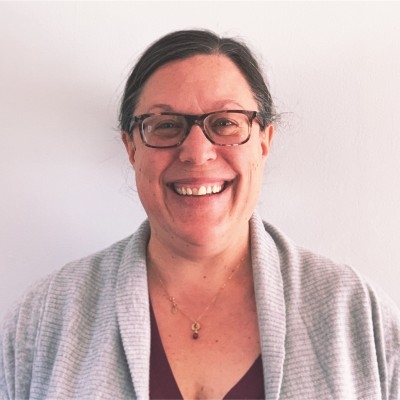You have /5 articles left.
Sign up for a free account or log in.
We met Sarah Lohnes Watulak at the Digital Learning Summit at Notre Dame University. Over dinner, we heard Sarah’s story of her journey from a tenured professor to taking on a leadership role at Middlebury College as director of digital pedagogy and media. Given our interest in nontraditional academic careers, we asked if Sarah would be willing to share her story with this community.

Q: Tell us about your role at Middlebury.
A: As the director of digital pedagogy and media at Middlebury, I work with colleagues in the Office of Digital Learning and Inquiry (DLINQ) to create digital learning opportunities and environments that support learner agency, equity and inclusivity, and critical engagement with the discourses that surround educational technology and digital media. This unfolds across a few areas of work that I am responsible for, including faculty professional learning programs related to digital pedagogy and learning technologies, and facilitating our Inclusive Design Studio.
I also have the privilege of leading our excellent team of instructional designers, who consult with faculty and staff across the institution on digital learning projects. We work on a wide range of projects, from helping faculty at Middlebury College to integrate digital storytelling projects into their primarily on-ground courses, to partnering with programs at our Middlebury Institute of International Studies at Monterey, California, to design and develop competency-based, fully online, asynchronous degree programs. Recently, we have also partnered with faculty at the institute to launch online, self-paced, noncredit courses on the Canvas Catalog platform.
Q: You were a tenured professor. What made you want to move from a professorship to a nontenured staff role? What was it about the Middlebury opportunity that caused you to make this decision?
A: The impetus to change roles was initially a personal decision, spurred by the need to be closer to our families as we added kiddos to our own family. I was not looking intensively, but the Middlebury opportunity caught my eye and really got me thinking about the possibilities of making a change. I had started my career, right out of college, at the Center for Educational Technology at Middlebury, which was formed following a grant from the Mellon Foundation (and eventually became part of the National Institute for Technology in Liberal Education). The full-circle narrative appealed to me, and had the added benefit of being close to my in-laws.
The personal connections caught my attention, but several things about the position itself appealed to me as well. Most importantly, the position was squarely within my academic discipline (instructional design and technology), and offered an opportunity to participate more directly in the application of theories and practices that I’d been teaching in my graduate instructional design courses. I saw another opportunity for alignment in the fact that the organization that I’d be joining, DLINQ, valued a critical approach to technology, a perspective that I also valued and attempted to share with students in my classes.
In short, I felt as though the expertise that I had spent my career to that point building would be valued, needed—and I would be able to continue to learn and grow in the position. To that end, I was also excited to see that the job description encouraged a continued engagement with scholarship, and I’ve had the opportunity to conduct research and publish several articles and book chapters during my time here thus far.
I will say that many people are a little shocked by the idea of giving up a tenured position, especially since moving into a staff role is seen by some as a “step down” within the academic power structure. (“Step down” in quotes to highlight the obviously problematic nature of that statement.) But we know that the work of the tenured faculty member has changed a lot in recent years, in ways that make it increasingly difficult to live a balanced life. Another reason that the position at Middlebury appealed to me is that it seemed like it would allow me to continue to work in my field, and contribute to my field, in the context of a more typical 9-to-5 workweek.
Q: What advice do you have for other academics who may be contemplating a career path outside of a traditional tenure-track faculty role?
A: First and foremost, don’t dismiss an opportunity because you think that your skill set and résumé/CV doesn’t perfectly align with the requirements listed in the job description. If a job description calls for management experience, for example, think about what experiences you’ve had that have called upon similar competencies. You may not have supervised a staff of direct reports, but have you managed a team of researchers or graduate assistants? Have you chaired a committee that was tasked with bringing diverse stakeholders together to deliver a particular outcome or product? What strategies have you used to manage your own complex workload?
If you are transitioning roles within academia, consider how your perspective can be a benefit to your new role. For example, my understanding of the day-to-day life of a faculty member provides me with insight into the pressures that faculty face and allows me to communicate across the faculty-staff divide in ways that can be helpful and productive.
Finally, if you’re looking to maintain a research agenda, it’s worth noting that a faculty position is not the only position from which you can conduct research. If you are transitioning to a position that intersects with your research interests, ask whether you would be supported in continuing to conduct and disseminate research in the context of your new position.




